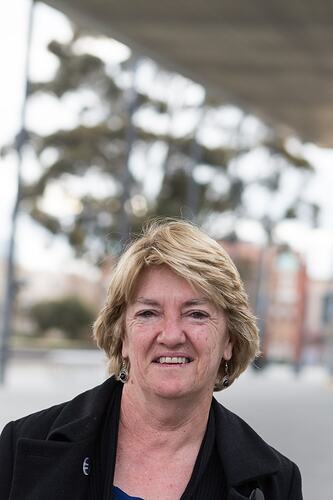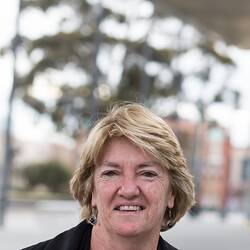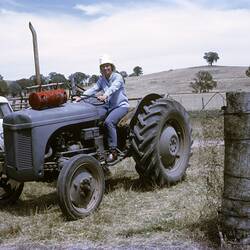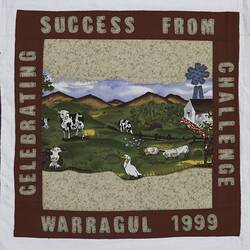Summary
Audio interview with Margaret Alston recounting her experiences with agriculture and rural life, and her work with the Rural Women's Movement of the 1980s-1990s. The recording was conducted at Melbourne Museum's conservation sound studio in on 9 September 2015, interviewed by Catherine Forge.
Margaret Alston is an academic at Monash University and has authored several books that focus on the role of farming women in Australian agriculture. She has argued that Australian farming women have been neglected, ignored and silenced in mainstream narratives about rural Australian life and she has urged media, government and researchers to take more notice of what she calls the 'hidden heart of rural Australia' (1995). Margaret was active during the Rural Women's Movement of the 1980s-1990s and her academic works have directly informed policymakers and encouraged rural women to continue lobbying and networking. She has been involved firsthand with a number of rural women's networks including the Women on Farms Gatherings, the Foundation for Australian Agricultural Women, and the Rural Women's Policy Unit. Margaret was chosen to be interviewed due to the significant impact that she had during the Rural Women's Movement along with the fact that she is one of the only academic researchers in Australia to have focused their attention on the invisibility of Australia's farming women.
This interview is part of the Invisible Farmer Project, The Invisible Farmer Project was the largest ever study of Australian women on the land, uncovering the histories and stories of Australian women in agriculture. It began as a pilot project (2015-2016) and evolved into a three year (2017-2020) nation-wide partnership between rural communities, academic, government and cultural organisations, funded by the Australian Research Council.
Description of Content
Interview with one woman discussing her involvement in the Rural Women's Movement of the 1980s and 1990s and her long academic career that has focused on documenting the experiences of Australian farming women. Throughout the interview Margaret speaks about her personal ties to farming, including her childhood spent on the family farm and the sad experience of losing her father and subsequently watching her mother take on the management of the farm. Margaret then goes on to reflect on her long career in farming (both on the farm and in academia), her ties to the Rural Women's Movement, and her multiple roles in rural women's organisations and networks. She also provides insight into her motivations for becoming an academic in the field of rural women's studies. She outlines some of her personal experiences with gendered notions of farming, provides insight into her academic and feminist views on agriculture and ends the interview by outlining some of the reasons why the contributions of farming women need to be recognised publicly.
Physical Description
Digital Audio Recording: 2 WAV files.
More Information
-
Collection Names
Victorian Women on Farms Gathering Collection, Invisible Farmer Project Collection
-
Collecting Areas
Sustainable Futures, Politics & Society, Working Life & Trades
-
Interviewee
Ms Margaret Alston, Melbourne Museum, Melbourne, Victoria, Australia, 9 Sep 2015
-
Interviewer
Catherine Forge - Museums Victoria, Melbourne Museum, Melbourne, Victoria, Australia, 9 Sep 2015
-
Individuals Identified
Margaret Alston
-
Recording Details
-
Format
Digital file, WAV
-
Language
English
-
Classification
Agriculture & rural life, Community activity, Oral histories
-
Category
-
Discipline
-
Type of item
-
Keywords



